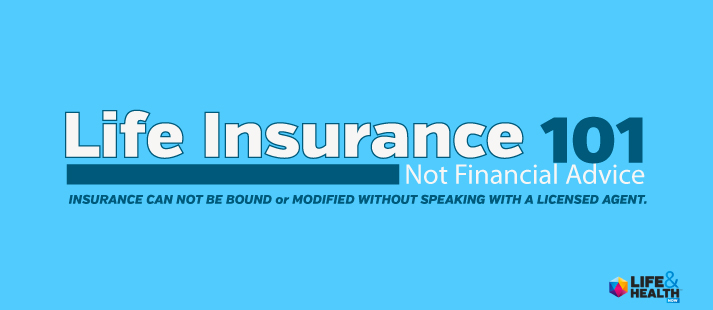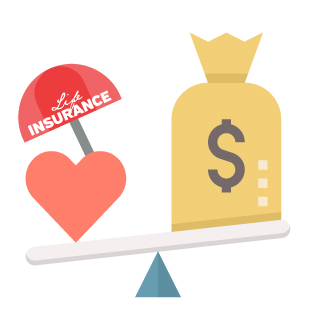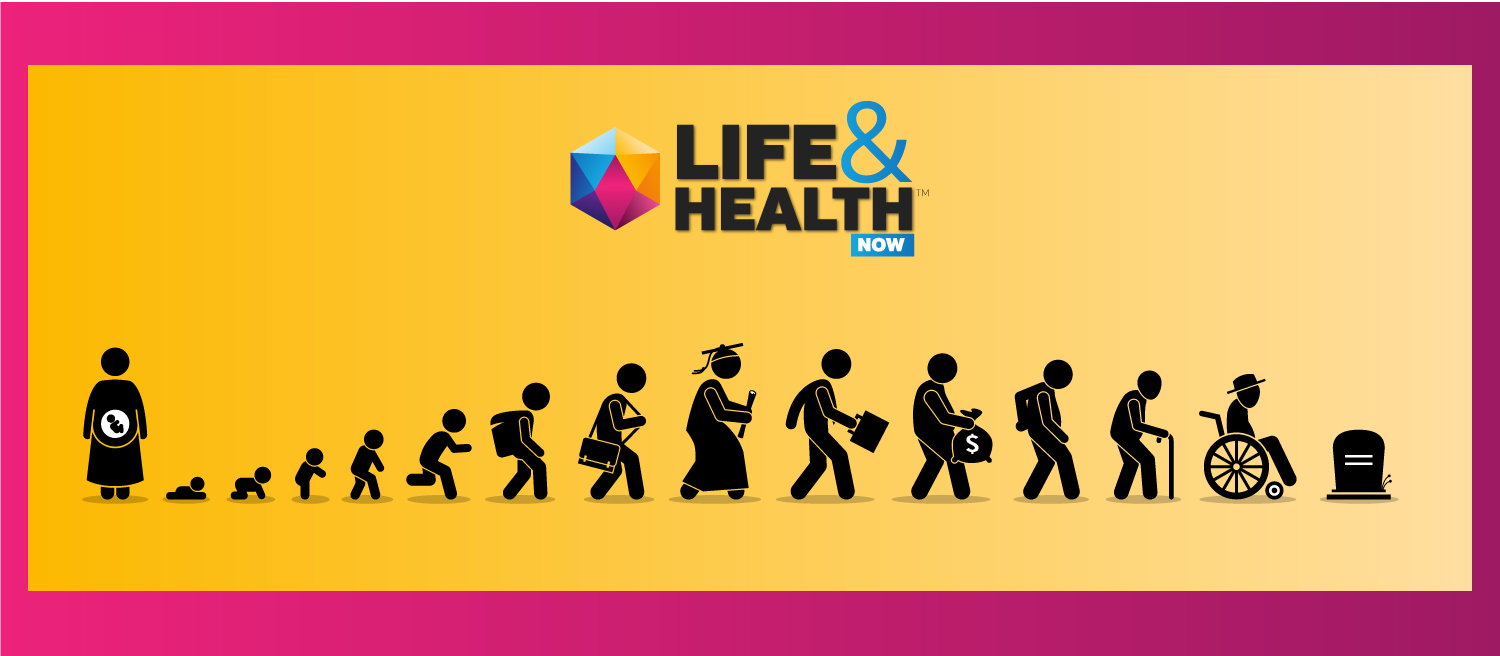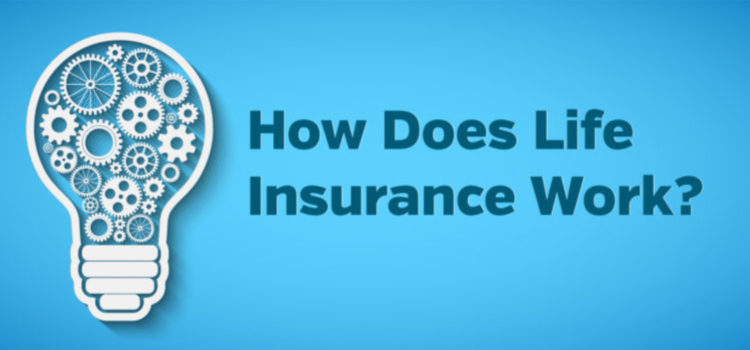At first glance you might be wondering how life insurance companies are able to stay in business. You might be wondering since everyone eventually dies, how a business could be created that involves paying out large sums of money to their survivors? It doesn’t really sound like such a great business plan, right?
When you consider the hundreds of thousands or even millions of dollars paid upon the death of a loved one, it’s a valid question. Especially in comparison to the modest monthly payments (premiums), paid by their customers.
And before too long, these questions could lead to more questions such as, do insurance companies really make good on their payments? Do they just look for legal loopholes to get out of paying? These are all great questions, and together we will have a look at them, in today’s post below.
Topics Covered On This Page: Click on any of the links below and proceed to the section.

Life Insurance 101
First, let’s say from the outset that each policy is governed by the contract and terms of your agreement with the underwriter. That is to say the company who will be responsible to pay the death benefit, should the insured die, while the policy is in effect. And without reading your policy, it’s impossible to truly know what might be excluded. Because life insurance policies can be confusing and complicated, it’s best to review and discuss your policy questions with a licensed insurance agent.
Term Life Insurance
TERM LIFE INSURANCE: Term life insurance provides a death benefit protection for a limited period of time. Since periods of time can be broken down into terms, such as years, months or decades, the label fits quite well. Term insurance is limited to a certain term period or unit of time.
In general, this is the simplest form of life insurance, and we will use term insurance as a starting point into the introduction of life insurance types. To get started, you will complete a life insurance application, your application will be submitted and reviewed by the underwriter, and if accepted, your policy will be effective so long as you don’t violate any of its terms and conditions.
And of course that would include making your monthly or annual premium payment on-time and as agreed. As we’ve already outlined above, with term insurance,  the person buying the insurance will normally pick from a selection of terms or time-frames. This represents the amount of time for which you would like the insurance protection to be in-force. For example, you might select a 5 year term, 10 year term, 20 or even a 30 year term. Different companies may offer different term options. Be sure to inquire with your agent about the policy protection term limit options which are available to you. Once you sign and make your initial payment towards your term life policy, your insurance will be in effect from the date your application is approved, until the full term of your policy has passed. And when the term is completed, your policy will expire. At which point, you will no longer be insured by the policy. When your term policy is over, that’s it. There is no accumulation of cash or value in a policy such as this, as it’s a very simple and straightforward type of life insurance. If you die while covered under the term (time frame) of the policy, you’ll be protected and when the policy expires, that protection ends.
the person buying the insurance will normally pick from a selection of terms or time-frames. This represents the amount of time for which you would like the insurance protection to be in-force. For example, you might select a 5 year term, 10 year term, 20 or even a 30 year term. Different companies may offer different term options. Be sure to inquire with your agent about the policy protection term limit options which are available to you. Once you sign and make your initial payment towards your term life policy, your insurance will be in effect from the date your application is approved, until the full term of your policy has passed. And when the term is completed, your policy will expire. At which point, you will no longer be insured by the policy. When your term policy is over, that’s it. There is no accumulation of cash or value in a policy such as this, as it’s a very simple and straightforward type of life insurance. If you die while covered under the term (time frame) of the policy, you’ll be protected and when the policy expires, that protection ends.
Whole Life Insurance
 WHOLE LIFE INSURANCE: As the name implies, this type of insurance is not limited to a certain “term” but is designed to protect you with a death benefit for your entire life – your “whole” life. Additionally, whole life insurance falls into the category of life insurance policies which build up cash-value. Some people think of this as a form of savings. There are different names for this type of life insurance, and some of the names for this type of coverage include: Whole Life Insurance, Universal Life Insurance, or Permanent Insurance. Since these types of life insurance policies include the accumulation of cash-value, you may have some redemptive value to your policy, should you decide to cancel it before you die. Insurance with cash-value is more expensive than term insurance, and if you’re interested in learning more about how it works, be sure to ask your agent and they’ll be happy to review all of your options.
WHOLE LIFE INSURANCE: As the name implies, this type of insurance is not limited to a certain “term” but is designed to protect you with a death benefit for your entire life – your “whole” life. Additionally, whole life insurance falls into the category of life insurance policies which build up cash-value. Some people think of this as a form of savings. There are different names for this type of life insurance, and some of the names for this type of coverage include: Whole Life Insurance, Universal Life Insurance, or Permanent Insurance. Since these types of life insurance policies include the accumulation of cash-value, you may have some redemptive value to your policy, should you decide to cancel it before you die. Insurance with cash-value is more expensive than term insurance, and if you’re interested in learning more about how it works, be sure to ask your agent and they’ll be happy to review all of your options.
Protections & Caveats
There are generally provisions to protect the life insurance company built into the agreement, such as a suicide exclusion – most would agree, it wouldn’t be fair for the life insurance company to be responsible to pay the death benefit in a situation where someone rushes to purchase life insurance with the intent to end their own life to solve an immediate financial problem for their family. Therefore, most policies have a two year exclusion on such events to help protect the insurance companies financial interest, their ability to pay claims and to not provide a financial incentive for those who are financially desperate and/or suicidal. Additional protections for the underwriter also will include things like making sure the applicant is bound to be honest on their application. In order for a contract to be legally enforceable, it’s important that the parties of an agreement act fairly with each other. It’s certainly not fair for one party to lie or be dishonest with the other, especially when entering into a legal agreement. Dishonesty and deception in business are fraudulent behaviors and when discovered and proven are often a legal deal breaker. Being dishonest could certainly provide a defense for the insurance company to refuse payment. For that reason, it’s very important that you always answer any of the questions found on an insurance application accurately and honestly.
But, no matter which type of life insurance you decide is right for you, it’s always very important to be sure you complete your application honestly.
What About The Cost?
You might be asking what kinds of factors determine the cost or amount of the premium that one might pay for their life insurance policy? The price an individual pays usually depends on many factors. Some of those include the following:
 How old are you? Age makes a big difference in determining risk when it comes to life insurance. Since life insurance companies are very interested in understanding the average lifespan for men and women. The older we get, the more likely we may experience a medical issue and possibly death. Obtaining insurance early and locking in for a longer term is a wise choice. If you can purchase before the age of 40, that would be highly recommended. Applicants between the ages of 30 to 39 are rated in a different lower risk category than those over 40. This lower risk generally means you’ll be able to lock in at a lower premium and for a longer term. And if you wait until you’re over 60, not only will the cost be more expensive than when you were younger, but you’ll likely find your options for the longest term policies, are no longer available.
How old are you? Age makes a big difference in determining risk when it comes to life insurance. Since life insurance companies are very interested in understanding the average lifespan for men and women. The older we get, the more likely we may experience a medical issue and possibly death. Obtaining insurance early and locking in for a longer term is a wise choice. If you can purchase before the age of 40, that would be highly recommended. Applicants between the ages of 30 to 39 are rated in a different lower risk category than those over 40. This lower risk generally means you’ll be able to lock in at a lower premium and for a longer term. And if you wait until you’re over 60, not only will the cost be more expensive than when you were younger, but you’ll likely find your options for the longest term policies, are no longer available.
Daily Choices in Lifestyle
If you’re overweight, or a heavy drinker, this can lead to health issues. And those issues will place you in a higher category of risk for death since they shorten one’s life expectancy. Making healthy choices can not only help you live longer but they can help you save money on your life insurance premiums.
Are You Healthy and In Good Shape?
If you have a pre-existing medical condition, that can have an affect on your life insurance premium cost. Some conditions such as being diagnosed with cancer, may prevent your ability to purchase life insurance. Insurance companies don’t generally issue a policy to someone who’s currently undergoing cancer treatment. If they do decide to approve your policy, it may be more expensive, they may require your cancer screenings to be negative for a certain period of time and your coverage may be limited.
Family Medical History
If your parents have a history of chronic medical conditions, that can play a role in determining your risk for insurance. For this reason, don’t be surprised if a life insurance company asks you to share with them information about your parents or siblings medical history.
What Kind of Work Do You Do?
Are you a trapeze artist, does the guy at the state fair throw knives at you all day? If you’re line of work is considered dangerous, you may have to pay more than someone with a less risky job. A more realistic comparison of assessing modern job risk may be comparing a skydiving instructor to an office manager. So be prepared to provide an honest description of your employment, which will allow the underwriter to assess the risk of your work and how it might impact the cost of your policy.
Are You A Smoker? Do You Use Smokeless Tobacco?
Smokers have increased health risk over their lifetime in comparison to non-smokers. If your’e a smoker, you can expect to pay more for life insurance than a non-smoker. This also includes vaping and any other tobacco related products like chewing tobacco (sometimes referred to as smokeless tobacco).
How Long of A Life Insurance Term Do You Want or Need?
The longer the term, the higher the chances that the life insurance company may have to pay a claim. For this reason, longer terms are more expensive than shorter terms. But keep in mind, locking in a longer term at a younger age, would be much better than waiting until you’re older to obtain a shorter term. And a 30 year term may be quite affordable if you’re still under 40. The best way to know is to submit a request for your personal life insurance rate quote today. Another reason to lock in for longer terms while your younger is to protect yourself from future health issues that could prevent you from being able to obtain life insurance, as well as save you a lot of money from the costly expense of increased premiums. As we age, we may develop chronic illnesses, and these must always be disclosed on a life insurance application. These kinds of disclosures could put you into a higher risk group which would affect the cost of your premiums. Locking in a lower life insurance rate while you’re young and healthy, and for a longer term, is our recommendation for saving money and making sure that you have the life insurance protection you need in place.
How Much Coverage Do You Want?
This may sound obvious but choosing a higher death benefit (1 Million vs. $5k for example), will result in more expensive life insurance premiums.
Don’t sweat the details over how your application might compare to others. Insurance companies are in the business of writing policies, and for the most part, they’re always looking for new business. So, if you’re a smoker, overweight, have some family history of medical conditions…whatever the story is, we encourage everyone to not over think the application process. It is what it is. The underwriter has a process for assessing risk, and in the end, you may end up paying a slightly higher amount than the next person, but the important thing is, you’re insured.

One last thought, for those looking at the more affordable option, term life insurance, but concerned about not having a built-in cash-value feature like those offered in a traditional whole life insurance policy. If you’re young, let’s say in your 30’s or even older in your 50’s, and you lock in for the longest term you can, if that’s a 30 year term, great, if it’s only 15, go for that, but in this example we’re going to select the longest term we can get. Next, you’ll want to focus on saving money. If you’re older, you’ll have to be much more aggressive and save a whole lot more of your income, since you have less time to accumulate. If you’re younger, save as much as you can, but at least you do have time on your side. The key to saving when you’re young is time and consistency. You can choose a flat monthly amount to contribute to your savings, or a percentage of your total income each month to save. Either way, pick a method and stick with it for the long haul. If you select a flat dollar amount to save each month, keep in mind that as your income increases, so should the dollar amount that you have selected. You might start off with only being able to save $25 or $50 each month, but over time, you’ll find you can increase that amount to $100, $200 or much more. The most important thing is to remain faithful and disciplined over the years as you save for your retirement.
Many people find saving a certain percentage of their household income each month to be a great way to calculate how much to save, such as 10% or 20%. If you’re older, you may need to save 50% and find ways to drastically cut your expenses and spending in order to meet your savings goals. Which is why it’s very important to start today. No matter how old you are currently, it’s the youngest that you’ll ever be. The idea is that today while your savings is low, your term insurance would cover you with life insurance, should you pass away before having sufficient time to build up your own savings account.
Also don’t just “save” money by purchasing the lower cost term insurance and blow the rest of your monthly income on entertainment or frivolous spending. You only truly save money when you actually find ways to invest the difference of what you could have spent. Savings happens when you purchase or invest into assets that will retain or appreciate in value over time. If you decide to go with the less expensive life insurance alternative, be sure you put away the money you would have spent had you purchased the more expensive forms of life insurance that include a built-in savings feature, such as a whole life or universal life policy.
With term insurance, having a 15 or 30 year term may temporarily cover all of your financial liabilities while you’re building your savings for retirement, but you’re going to need a savings account for when your insurance runs out, right? Of course you will.
While you’re younger and have higher liabilities such as mortgages, loans, kids to send to college, etc, and you’re building up a savings and/or retirement account, the less expensive term life insurance will be there in case your plan to live a long life doesn’t work out. I know, not a popular thing to say, but it’s why insurance exists in the first place. To protect us from the unexpected.
You don’t want your spouse and children to suffer as a result of not taking the time to protect them with an affordable term life insurance policy. Then, when you’re older, as long as you saved and planned for the future, and depending on how well you did at saving, you could have plenty of savings built up and no longer need life insurance when you’re older.
If you do choose to have a whole life policy and make payments until your last day of living, that’s up to you, but we have a few things for you to keep in mind. First, that could mean making payments for a very long time, since some people even live past 100 years old. Second, the premiums are normally a lot more expensive, since the policy includes both savings and insurance for the longest term possible (until you actually die, i.e. whole life).
We want you to know that you do have choices, but which ever type of policy that you decide on, be sure to check the terms of any investment or savings “type” bundled life insurance policy very carefully. Most of the whole life and universal life insurance policies, only pay one or the other. This means your family (or whoever the named policy beneficiary may be) will either receive the death benefit or the built up savings but not both – usually whichever is the greatest amount.
So if you have $100k in the savings portion of your insurance policy, and you have $100k in the death benefit portion, your family will likely not receive both portions (the total of $200k), but only one or the other. However, if you save your own money separately (and do not mix it into your insurance policy), but purchase the lower cost term insurance policy, you will always be able to have access to your own separate savings or retirement account, which has nothing at all to do with your life insurance policy. Does this make sense? We encourage you to call us with your questions. Use the forms on this page to reach out, and a licensed agent will speak with you directly and help you navigate your life insurance needs.
If you’re wondering about where to save or what to do with your savings, that is beyond the scope of this article, but if you’re not familiar with retirement accounts, do some research on “how to set up an IRA” or “Roth IRA”, those search terms will provide you with a place to begin. And if you decide to purchase the less expensive term insurance to cover you while you’re younger, and your savings is probably lower but your bills and balances are higher, you’ll probably sleep a little easier at night knowing you’re family has the financial protection provided by an affordable term life insurance policy that should last (if you can get a long enough term) until you’re savings has built up enough of a balance to carry you through old age.
Keep in mind, this is not financial advice and not a substitute for speaking with a licensed insurance agent. We’re not offering legal, financial, medical or tax advice here in this blog post. We’re only sharing our opinion and we encourage you to call and speak with a licensed agent or to simply do your own research. Each person’s situation is unique and different so it would be impossible to provide a custom answer for each person who may be reading this post. We look forward to hearing from you and helping to answer your life insurance questions by phone. Feel free to use the form on this page to get your life insurance quote started today.

Most financial advisors suggest that making a buying decision before turning 35 is best. Since the premium cost will increase once you reach this age. And that’s not all. Just look around and I’m sure you can see that as people start to age, some start to experience health problems. If you wait too long, like over age 65 you may find it difficult to obtain insurance, and if you do, you may be very limited with regard to the term…that’s the number of years that the insurance company is willing to extend you coverage and lock in the pricing.
So, there you have it. Our best tip for you today is, you’re not getting any younger – carpe diem! Seize the day and speak with an agent. If you click on the button below, an agent will be glad to work with you one on one and make sure you get the answers you are looking for and the right policy for your budget and families needs.
Speak with a licensed agent today. We're here to answer all of your questions.
Choosing the right life insurance coverage for your family is a great way to protect your loved ones. Our licensed agents are here to help. Contact us today to get answers to your important life insurance questions.
